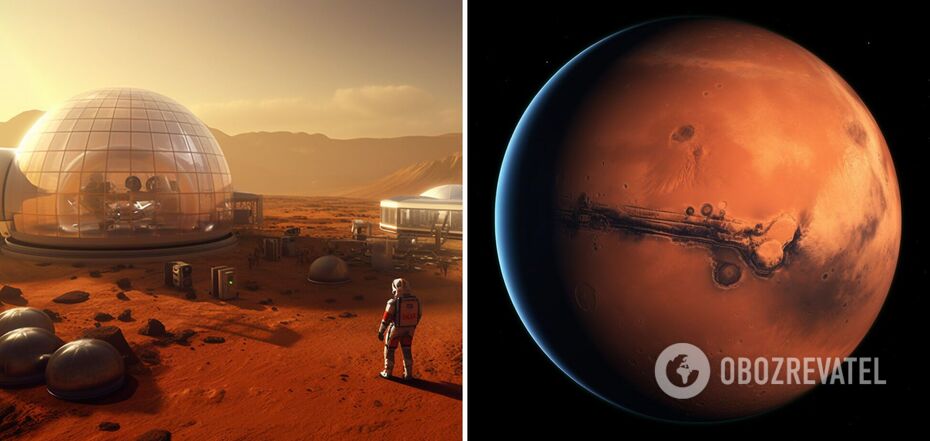Life
When will humans be able to colonise Mars and other planets: scientists' predictions
The idea of colonising the nearer planets, including Mars, is no longer new. China, for example, plans to send crews to Mars as early as 2033, and NASA has set an ambitious goal of bringing astronauts to the red planet by the 2030s and 2040s.
According to scientists, as soon as humans set foot on Mars, we can talk about building a colony. Such colonisation will involve a certain level of self-sufficiency, but complete independence from Earth is not yet in question. Details about the forecasts and prospects for Mars exploration were provided by Live Science.
Serkan Saidam, who is the deputy director of the Space Technology Research Centre in Australia and a professor at the University of New South Wales in Sydney, said that the creation of the first colony on Mars, according to his forecasts, is indeed possible in the next few decades.
According to the scientist, the main step in the colonisation of Mars will be the process of water extraction. It can be obtained from ice or hydrated minerals. Then it's a matter of technology. It will be possible to grow food through agriculture, and minerals can be used as a source of rocket fuel.
Not all scientists are unanimous about the optimistic prospects for future colonisation. For example, Louis Friedman, an astronautical engineer and co-founder of the non-profit organisation The Planetary Society, is confident that current generations are unlikely to witness the creation of the first Martian colony. Rachel Seidler, a neuroscientist at the University of Florida, also believes that colonisation plans are too optimistic.
At the same time, Saidam compared Mars to a very distant island to which the necessary things will need to be brought from time to time. There are many other nuances to consider. For example, finances and investments.
Colonisation requires large-scale funding. Scientists say that one of the best options is space tourism and space mining. But the reality may not be as rosy as the forecasts.
Astrophysicist Frédéric Maren of the Astronomical Observatory of the University of Strasbourg drew attention to the distance of exoplanets from Earth. It will take several tens of thousands of years to reach the nearest one with the current level of technology. Therefore, the colonisation of distant exoplanets is out of the question for the time being. However, he does not rule out the possibility of interstellar travel in the near future.
Indeed, Mars is the most realistic option for colonisation, but the conditions on the planet are not the best. The average temperature is around -60°C, which is too cold for humans, and the atmosphere is more than 90% carbon dioxide. The fastest spacecraft reaches Mars in almost 9 months. And this is not to mention the harmful radiation that bombards the red planet.
Earlier, OBOZREVATEL reported that something is happening on Saturn that astronomers have never seen in the Solar System.
Subscribe to OBOZREVATEL's Telegram and Viber channels to keep up with the latest news.




























